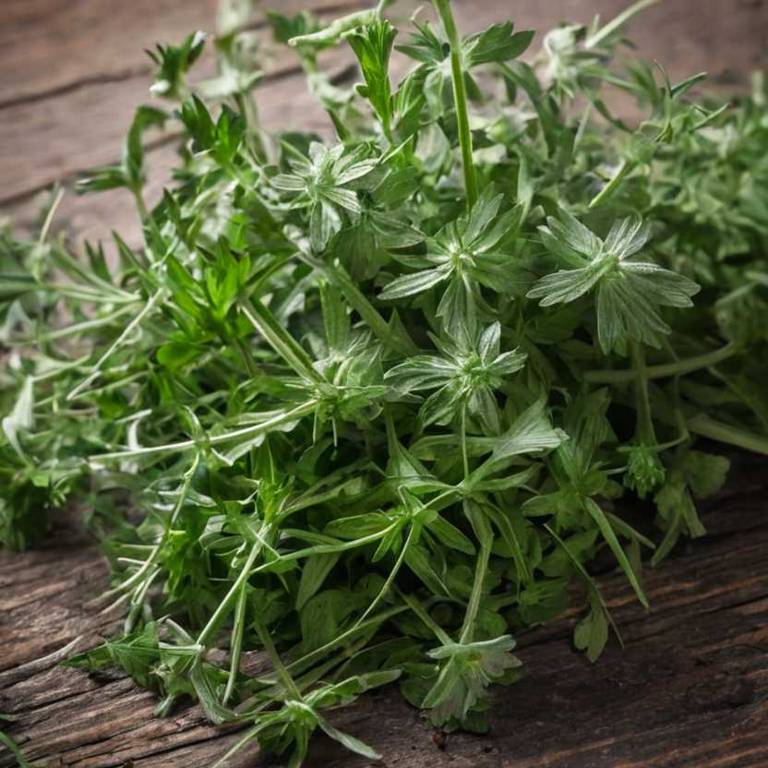10 Best Apium Graveolens Preparations

The best medicinal preparations of Apium graveolens are teas, decoctions, tinctures, essential oils, and syrups, each offering unique benefits for health.
Teas made from fresh or dried leaves are commonly used to soothe digestive issues and promote respiratory health.
Decoctions, which involve boiling the root or stem, are valued for their deeper extraction of medicinal compounds.
Tinctures provide a concentrated form of the herb, often used for its anti-inflammatory and antispasmodic properties.
Essential oils derived from the plant are used in aromatherapy to relieve stress and support respiratory function, while syrups offer a palatable way to incorporate its healing properties into daily wellness routines.
Below there's a list of the 10 best herbal preparations of apium graveolens for medicinal purposes.
1. Teas
Apium graveolens teas is commonly used to relieve digestive issues, such as bloating, gas, and indigestion.
It is also used to support respiratory health by alleviating symptoms of coughs and colds. The tea is often consumed to reduce inflammation and as a diuretic to help flush out toxins from the body. Common ailments treated with this herbal preparation include gastrointestinal discomfort, respiratory infections, and urinary tract issues.
The bioactive constituents responsible for its medicinal properties include flavonoids, volatile oils, and essential oils, which possess anti-inflammatory, antimicrobial, and carminative effects.

2. Decoctions
Apium graveolens decoctions is commonly used to treat digestive issues, respiratory conditions, and as a diuretic.
These decoctions are often employed to alleviate symptoms of indigestion, bloating, and nausea, as well as to relieve coughs and bronchitis. They are also used in traditional medicine to support kidney function and reduce inflammation. The bioactive constituents responsible for these effects include volatile oils, flavonoids, alkaloids, and essential minerals.
These compounds contribute to the plant's antispasmodic, anti-inflammatory, and expectorant properties.

3. Tinctures
Apium graveolens tinctures is commonly used to treat digestive issues, respiratory conditions, and as a diuretic.
These tinctures are often employed for ailments such as indigestion, nausea, coughs, and urinary tract infections. The bioactive constituents responsible for these effects include compounds like apiol, limonene, and myristicin, which possess antispasmodic, carminative, and anti-inflammatory properties. Additionally, the tinctures may help alleviate symptoms of gallbladder disorders and menstrual cramps.
Due to their therapeutic potential, Apium graveolens tinctures are a popular choice in herbal medicine for supporting overall digestive and respiratory health.

5. Syrups
Apium graveolens syrups is commonly used to alleviate respiratory conditions such as bronchitis, coughs, and asthma due to its expectorant and anti-inflammatory properties.
This herbal preparation is also used to treat digestive issues like indigestion and nausea, and it may help relieve muscle spasms and pain. The most common medicinal uses include treating respiratory infections, gastrointestinal discomfort, and as a general tonic to improve overall health. The bioactive constituents responsible for these effects include volatile oils such as limonene and pinene, as well as flavonoids and alkaloids that contribute to its therapeutic properties.
These compounds work together to reduce inflammation, relax smooth muscles, and support respiratory and digestive function.

6. Capsules
Apium graveolens capsules is commonly used to support digestive health, alleviate symptoms of nausea, and promote respiratory function.
These capsules are often employed to treat ailments such as indigestion, bloating, and gastrointestinal discomfort. They are also used in traditional medicine to help with coughs, colds, and respiratory congestion. The bioactive constituents responsible for these effects include essential oils like limonene and myrcene, as well as compounds such as apigenin and flavonoids.
These components contribute to the plant's anti-inflammatory, carminative, and expectorant properties.

7. Oils
Apium graveolens oils is commonly used to alleviate digestive issues, such as bloating, gas, and indigestion, due to its carminative and antispasmodic properties.
It is also used to treat respiratory conditions like coughs and bronchitis because of its expectorant effects. Additionally, it has been traditionally applied topically for muscle pain and inflammation. The most common medicinal uses include treating gastrointestinal disorders, respiratory ailments, and skin conditions.
The bioactive constituents responsible for these effects include compounds like limonene, myrcene, and other essential oils that possess anti-inflammatory, antispasmodic, and antimicrobial properties.

8. Creams
Apium graveolens creams is commonly used to alleviate symptoms of skin conditions, digestive issues, and respiratory ailments.
These creams are often applied topically to treat eczema, psoriasis, and insect bites due to their anti-inflammatory and antiseptic properties. They are also used internally to relieve symptoms of indigestion, bloating, and gastrointestinal discomfort. The bioactive constituents responsible for these effects include essential oils, flavonoids, and volatile compounds like limonene and apiol, which possess anti-inflammatory, antimicrobial, and carminative properties.
Additionally, the presence of phytoestrogens may contribute to its use in regulating hormonal imbalances.

9. Juices
Apium graveolens juices is commonly used to treat digestive issues, respiratory conditions, and as a diuretic.
The most common medicinal uses include alleviating symptoms of indigestion, reducing inflammation in the respiratory tract, and supporting kidney function. It is also used to relieve muscle spasms and as a remedy for colds and coughs. The bioactive constituents responsible for these effects include essential oils, flavonoids, and various phytochemicals such as apiol and limonene, which have antispasmodic, anti-inflammatory, and antioxidant properties.
These compounds contribute to its effectiveness in treating a range of ailments.

10. Mucillages
Apium graveolens mucillages is commonly used to soothe digestive issues, reduce inflammation, and promote respiratory health.
This herbal preparation is often employed to treat ailments such as gastritis, ulcers, bronchitis, and coughs due to its demulcent and anti-inflammatory properties. The mucillages contain bioactive constituents like mucilage polysaccharides, flavonoids, and essential oils, which contribute to its therapeutic effects. These compounds help protect mucous membranes, reduce irritation, and exhibit antimicrobial activity.
Overall, Apium graveolens mucillages serves as a valuable remedy in traditional and complementary medicine for various inflammatory and digestive conditions.
